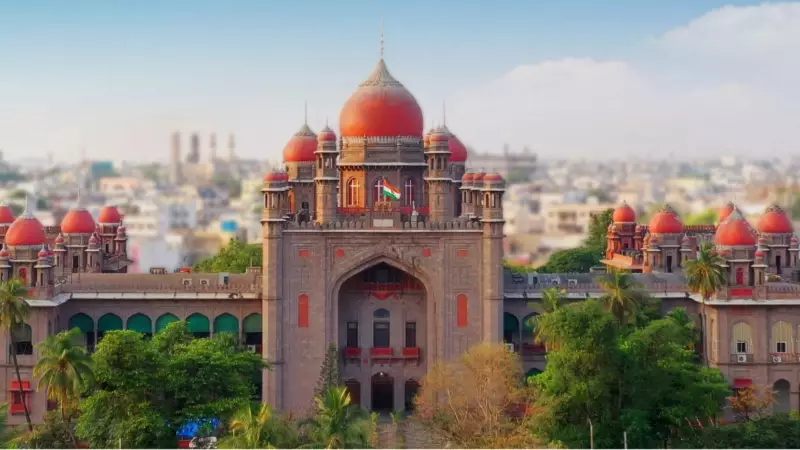
In a significant development that has sent shockwaves through the state administration, the Telangana High Court has delivered a stern ultimatum to the state government concerning the rampant illegal constructions mushrooming around the environmentally sensitive Osman Sagar reservoir.
The division bench, comprising Chief Justice Alok Aradhe and Justice Anil Kumar Jukanti, expressed deep frustration over the government's failure to comply with previous court orders aimed at protecting the century-old reservoir, famously known as Gandipet lake.
Judicial Fury Over Government Inaction
The court's patience appears to have worn thin as it confronted the government's apparent disregard for judicial directives. "Why have you not taken any action?" the bench demanded, highlighting the administration's puzzling inaction despite clear instructions to address the unauthorized developments threatening the reservoir's ecosystem.
This judicial intervention comes at a critical juncture when Hyderabad's water bodies face increasing pressure from urban expansion and commercial interests.
Contempt Proceedings Loom Large
The court has issued a clear warning that could have serious consequences for state officials. Contempt proceedings now hang like the sword of Damocles over concerned authorities if they fail to demonstrate concrete action by the next hearing scheduled for July 19.
This strong judicial stance underscores the gravity of the situation and the court's determination to ensure environmental regulations are not merely paperwork but enforced reality.
Historical Significance Meets Modern Challenges
Osman Sagar reservoir isn't just another water body—it's a historical landmark built in 1920 that has quenched Hyderabad's thirst for over a century. The reservoir has served as a crucial drinking water source while also acting as a natural flood control mechanism for the city.
The court's intervention highlights the ongoing tension between urban development and environmental conservation, a challenge facing many Indian cities experiencing rapid growth.
Environmental Implications
Legal experts suggest this case could set an important precedent for how Indian courts handle environmental protection matters, particularly concerning urban water bodies. The court's unwavering position sends a clear message to developers and government bodies alike: environmental laws cannot be circumvented for commercial gain.
As the July 19 deadline approaches, all eyes are on the Telangana government to see what concrete measures they will implement to protect this vital water resource and comply with the court's directives.






